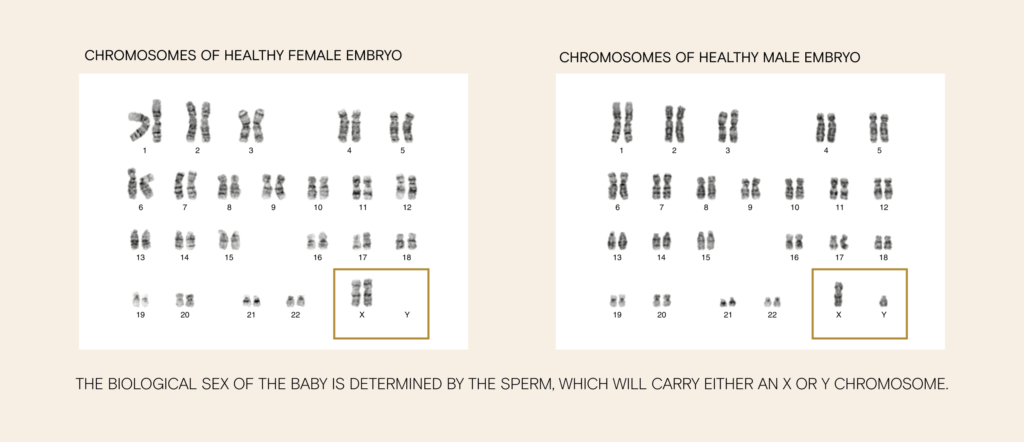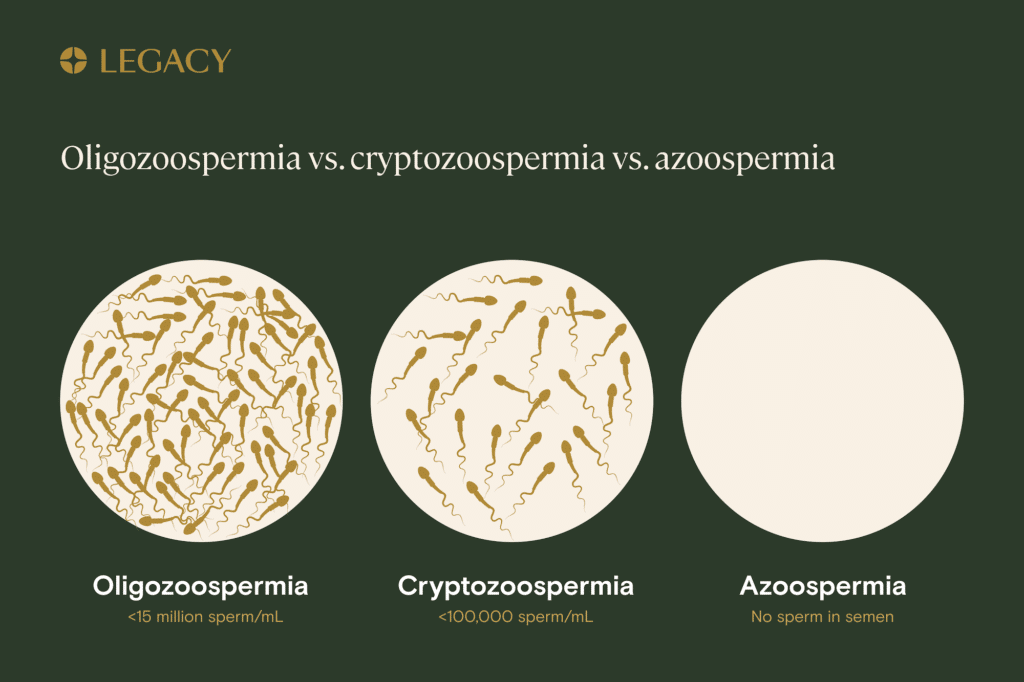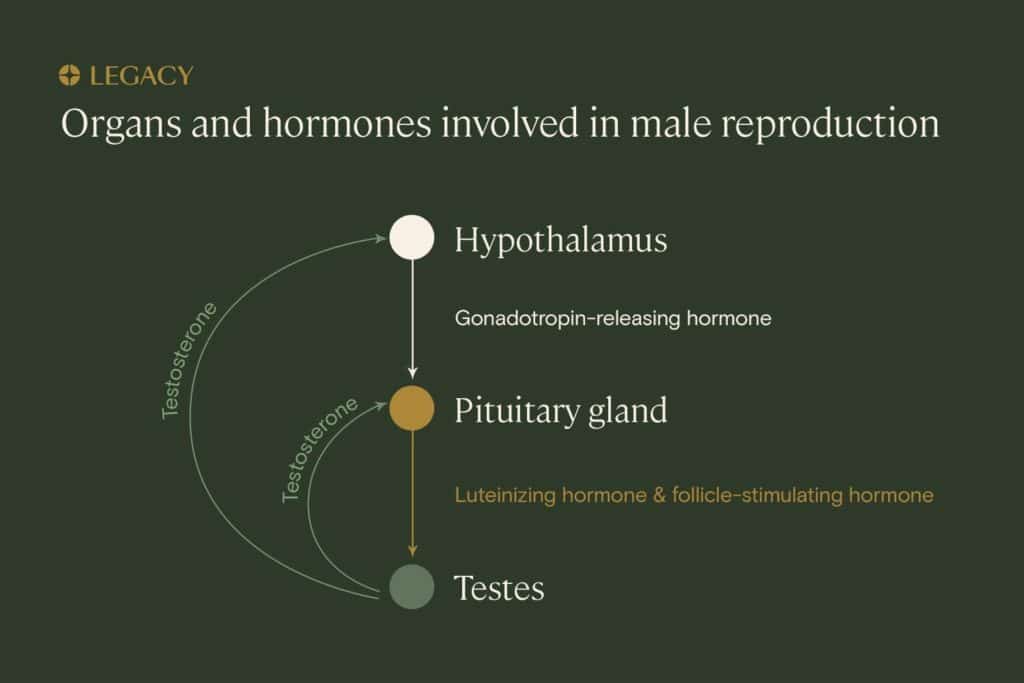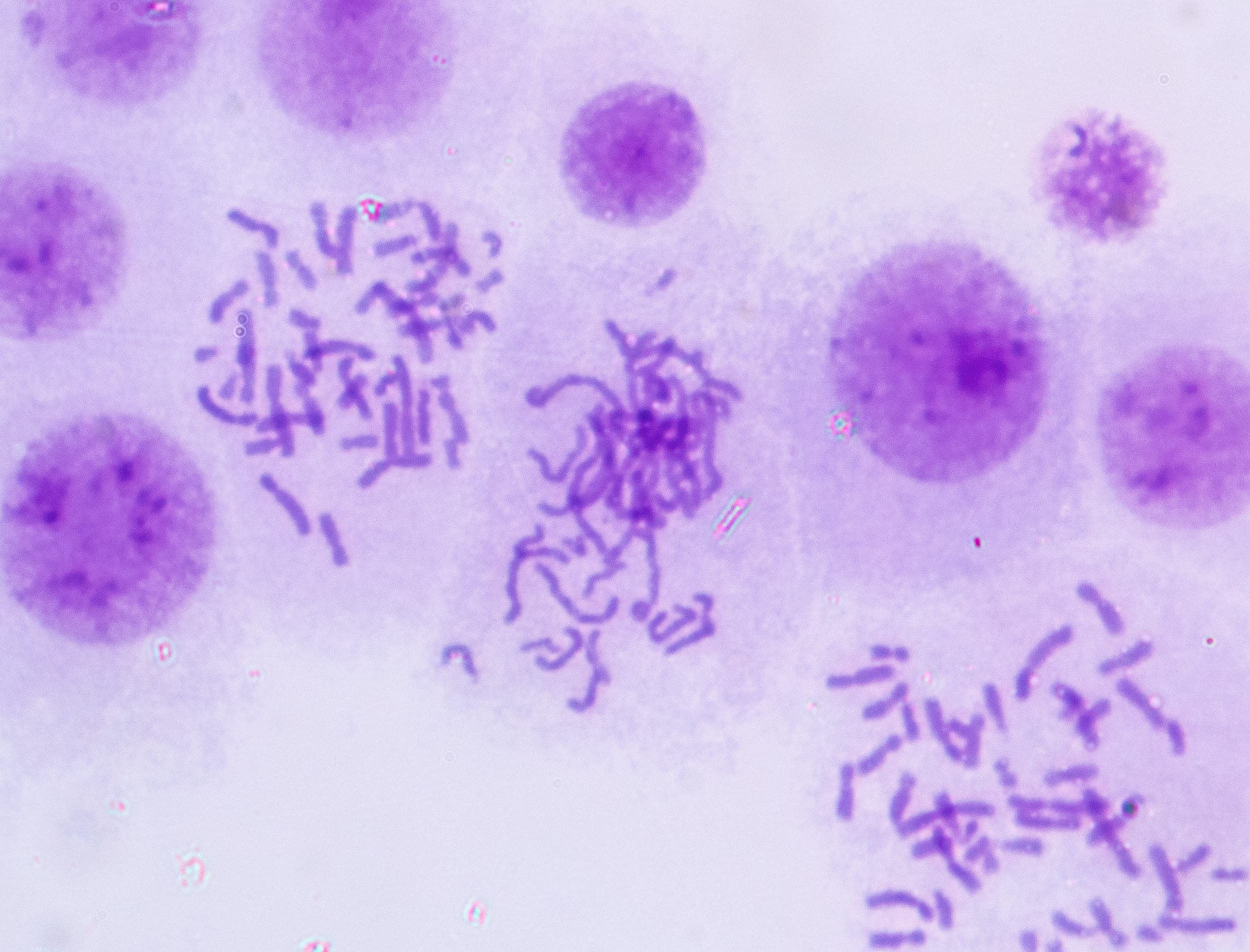Klinefelter syndrome is the most common human sex chromosome disorder, affecting one in 500 newborn males. Individuals with the disorder have an extra copy of the X chromosome in each cell of the body, presenting as an XXY genotype. Find out how and when Klinefelter syndrome is typically diagnosed, symptoms to watch out for, and fertility options to consider if you have Klinefelter syndrome.
The extra X chromosome may impact physical and intellectual development, resulting in symptoms like reduced muscle mass, little body hair, low testosterone, and/or mental health issues like anxiety and depression. Individuals with Klinefelter disorder typically also produce little or no sperm, impeding their ability to reproduce.
Though researchers are not sure what factors increase the risk of the disorder, there are fertility treatments and assisted reproductive procedures that may help.
Key takeaways
- Klinefelter syndrome is a genetic condition in which a male individual has an extra copy of the X chromosome.
- Individuals with Klinefelter syndrome often have from azoospermia, poor testicular growth, and low testosterone levels, negatively impacting male fertility.
- The two types of tests for the disorder are hormone testing and chromosome analysis (karyotype).
- Fertility treatments that can help people with Klinefelter syndrome include testicular sperm extraction (TESE) paired with IVF/ICSI and testosterone supplementation.

What is Klinefelter syndrome?
Most males inherit a single X chromosome from their mother and a Y chromosome from their father. Individuals with Klinefelter syndrome inherit an extra X chromosome from either their father or mother. Though they’re considered male, people with Klinefelter syndrome may experience problems that require treatment, including infertility.
Klinefelter syndrome is not inherited; the genetic condition seems to occur randomly, when one parent’s reproductive cells do not divide properly. It is estimated that about half of the time, the cell division error happens during development of the sperm, while the remainder of times are due to errors in egg development. The risk of having a child with Klinefelter syndrome slightly increases if the mother is over 35 years of age.
Typically Klinefelter syndrome is characterized by an extra X chromosome in every cell of the body. In rare instances, the extra X chromosome only occurs in some cells, and symptoms are milder. This is called mosaic Klinefelter syndrome. In severe cases, a person might even have more than one extra X chromosome.
How does Klinefelter syndrome affect male fertility?
People with Klinefelter syndrome often have azoospermia, a condition in which there is no sperm in the ejaculate. They may also experience abnormal testicular growth and low testosterone levels, which negatively impact male fertility. Here’s what the research says:
Azoospermia
Studies show that Klinefelter syndrome is found to be the cause of infertility in 10% of azoospermic males, and accounts for 2% of all cases of infertility. This type of azoospermia is known as “nonobstructive” — it’s not caused by a blockage in the vas deferens, ejaculatory duct, or epididymis.
Instead, Klinefelter-related azoospermia occurs as a result of the loss of germ cells, the originator cells from which sperm are copied. This loss typically increases around puberty, resulting in low to zero sperm in ejaculate.

Low testosterone levels
Klinefelter syndrome may impede testicular growth, resulting in smaller-than-normal testicles. This impediment can lead to a lower production of testosterone and decreased libido. This 2013 study indicates that 70% of individuals with Klinefelter syndrome experience reduced libido and sexual function from the age of 25.
Other symptoms of Klinefelter syndrome
Some individuals with Klinefelter syndrome show no symptoms or are only mildly affected. In these cases, they may not even know they have the extra chromosome — or may only find out when they’re trying to conceive.
In babies, Klinefelter syndrome may result in weak muscles, delayed motor skills, slow speech development, and undescended testicles. Symptoms can become more pronounced during puberty.
Physical symptoms of Klinefelter syndrome in developed males include:
- Small, firm testicles
- Less body hair
- Enlarged breast tissue
- Taller stature
- Weak bones
- Abnormal body proportions
- Low energy
- Opening of the urethra is on the underside of penis instead of the tip
- Low sperm count or no sperm
- Low testosterone levels
- Low sex drive
- Increased belly fat
Intellectual symptoms of Klinefelter syndrome in developed males may include:
- Impaired social skills
- Immaturity and impulsivity
- Problems with reading, writing, and math
- Anxiety and depression
- Limited problem-solving skills
- Inattention (signs of ADHD)
- Autism (occurs in 10% of Klinefelter syndrome cases)
Some studies show that Klinefelter syndrome may also contribute to an increased risk of diabetes, high cholesterol, metabolic syndrome, and therefore an increased risk of mortality from diabetes, cardiovascular, or cerebrovascular disorders.
People with Klinefelter syndrome may also develop breast cancer due to increased breast tissue, osteoporosis due to low testosterone levels, seizure disorders, and tremors.
How is Klinefelter syndrome diagnosed?
Approximately 64% of Klinefelter syndrome cases remain undiagnosed throughout life. This might be because there are no obvious physical signs at birth, though prenatal testing for the disorder is available. Many discover they have Klinefelter syndrome when they start having fertility troubles or receive an abnormal semen analysis result.
The two types of tests that can diagnose Klinefelter syndrome are hormone testing and a chromosome analysis. The hormone testing can reveal abnormal hormone levels, such as low testosterone, while the chromosome analysis, also called a karyotype test, checks the shape and number of chromosomes.
While a semen analysis or hormone test can suggest Klinefelter syndrome, a karyotype is required to identify the extra X chromosome.

Fertility options and treatments for people with Klinefelter syndrome
Research shows that between 95% and 99% of people with Klinefelter syndrome are infertile, because they do not produce enough sperm to fertilize an egg naturally. However, sperm are found in the testes in more than 50% of men with the disorder, making biological children possible with the right assisted reproductive technology.
Testicular sperm extraction for Klinefelter syndrome
Testicular sperm extraction (TESE) is a common fertility treatment for people with Klinefelter syndrome. The surgical procedure involves making a small incision in the testis to examine the tubules for the presence of sperm. If found, the sperm is typically cryopreserved for IVF/ICSI.
Success rates for TESE in Klinefelter syndrome patients vary. In a 2018 study, 34.8% of patients had a successful sperm retrieval with TESE. If there is no success with a conventional TESE procedure, some doctors will perform a “micro-TESE,” which uses a microscope to more closely identify sperm production. In combination with hormone stimulation, a micro-TESE has been shown to lead to a higher sperm retrieval rate, around 55%.
Since germ cell loss increases around puberty, testicular sperm extraction (TESE) at an adolescent age has been suggested to increase the chances of sperm retrieval. Research confirms that younger age at first TESE was associated with a higher sperm retrieval rate.
However, many people don’t know they have Klinefelter syndrome until adulthood. If significant germ cell loss has already occurred in early childhood, the chances of retrieving sperm are still slim, but possible, as shown in 2018 research.
Hormone supplementation and medication for Klinefelter syndrome
If low testosterone is an issue, individuals can also use testosterone supplementation to bring levels back up. Supplementation can help resolve a number of Klinefelter syndrome symptoms, resulting in improved muscle mass, a deeper voice, more body hair, matured reproductive organs, relief from anxiety and depression, bone strength, and even increased focus and attention.
However, testosterone supplementation will not improve fertility. In some cases, using clomiphene citrate (brand name Clomid), an anti-estrogen medication, can help. Clomid increases the levels of follicle-stimulating hormone (FSH) and luteinizing hormone (LH), two of the most important hormones involved in male fertility, potentially improving testosterone levels and sperm count.
Learn more about Clomid and other medications for male infertility.
Semen analysis is the first step
Whether you suspect you have Klinefelter syndrome or not, having a semen analysis performed is a great way to test the health of your semen and sperm. A semen analysis from Legacy will give you insights into your sperm count, as well as sperm motility and morphology so you can better understand your fertility chances.
Working closely with your doctor will also ensure you get the appropriate treatment you need to safeguard your physical and mental health and prevent problems in the future if you have this disorder.
Check your sperm health with an at-home semen analysis kit and explore our guide to sperm improvement for more resources.



